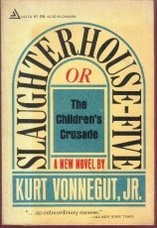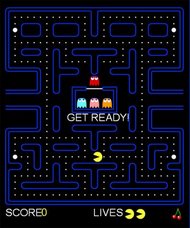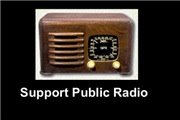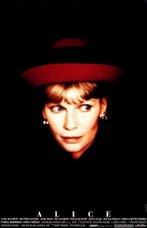Poetry is usually defined (down) as a frowsy, squishy, and/or not too terribly manly sort of literary thing that no one much bothers with because (and this they are especially certain of) "it doesn't pay". Well. We here at Danse Macabre believe in defining most things expansively, and are certain poetry can manifest itself in any variety of shapes & sizes other than the 'literary': music, speech, fashion, design, and, ahem, film.
There aren't many films about poetry, per se, for a variety of reasons. Poets aren't very cinematic, what with their essentially internal processes at work...and their generally unappealing external lives (see: the otherwise wonderful Agnieszka Holland's execrable Total Eclipse). And poetry itself usually gets lost between the page and the frame or the poet and the Wood of Holly (if you really believe a teacher like Robin Williams' would ever be hired by his old Ivy League prep skool in Dead Poet's Society, then the high fructose corn syrup has gotten the better of you).
But some films, a very few truly special, utterly unique films, can, in both their dramatic and cinematic incandescence, create...poetry. Here's our thumb-nail guide to some genuine poetry in motion.
 If you are a lover of poetry in all its' many forms and don't know the name of Krysztof Kieslowski, you owe it to yourself to discover this Polish writer-director's work, especially his Trois Colours trilogy, which turned out to be the last films he would make before his untimely death. If you need a synopsis of these before you rent (or buy...go ahead, buy the Miramax set on DVD - you'll treasure them), Roger Ebert's review found in his 100 Great Movies catalogue is a great place to start.
If you are a lover of poetry in all its' many forms and don't know the name of Krysztof Kieslowski, you owe it to yourself to discover this Polish writer-director's work, especially his Trois Colours trilogy, which turned out to be the last films he would make before his untimely death. If you need a synopsis of these before you rent (or buy...go ahead, buy the Miramax set on DVD - you'll treasure them), Roger Ebert's review found in his 100 Great Movies catalogue is a great place to start. Blue (or 'Liberte', from the French Tricolour) is a performance clinique by Juliette Binoche as a grieving wife & mother fighting to seal herself off from an ostensibly empty world. White ('Egalite') is among the blackest comedies ever made, where your idea of what
Blue (or 'Liberte', from the French Tricolour) is a performance clinique by Juliette Binoche as a grieving wife & mother fighting to seal herself off from an ostensibly empty world. White ('Egalite') is among the blackest comedies ever made, where your idea of what equality really means will be given a new lease on life via the unforgettable arc of Julie Delpy's character. Red, starring a radiant Irene Jacob and the always mesmerizing Jean-Louis Trintignant, is one of the most magnetic cinematic expressions of human emotions you'll ever see. Each chapter of the trilogy stands alone, yet are all almost imperceptibly intertwined until Red's coda, where the principals meet their fate together. You will marvel at the sheer visual poetry of every frame in each of these films as well as the artistry of Zbigniew Preisner's scores.
equality really means will be given a new lease on life via the unforgettable arc of Julie Delpy's character. Red, starring a radiant Irene Jacob and the always mesmerizing Jean-Louis Trintignant, is one of the most magnetic cinematic expressions of human emotions you'll ever see. Each chapter of the trilogy stands alone, yet are all almost imperceptibly intertwined until Red's coda, where the principals meet their fate together. You will marvel at the sheer visual poetry of every frame in each of these films as well as the artistry of Zbigniew Preisner's scores. Matthieu Kassovitz, the nervous bomb-maker from Spielberg's Munich, put himself on the map of international cinema with his explosive directorial debut, Hate. An uncompromising chronicle of a long, violent day in the unpleasant lives of three Parisian teenagers, Hate is mordant, trenchant, and verdant in every cinematic sense. Shot in luminous monochrome, over 10 years old yet still too cool for school, and at times nearly comic, Hate is every bit the equal of Tarantino's better known rock 'em, sock 'em debut.
Matthieu Kassovitz, the nervous bomb-maker from Spielberg's Munich, put himself on the map of international cinema with his explosive directorial debut, Hate. An uncompromising chronicle of a long, violent day in the unpleasant lives of three Parisian teenagers, Hate is mordant, trenchant, and verdant in every cinematic sense. Shot in luminous monochrome, over 10 years old yet still too cool for school, and at times nearly comic, Hate is every bit the equal of Tarantino's better known rock 'em, sock 'em debut. Another august member of Mr. Ebert's 100 Great Films, Wim Wenders' masterpiece Wings of Desire is a case study in cinematic poetry. From an unforgettable screenplay partially constructed from actual excerpts of German poetry to the compositional prose of legendary cinematographer Henri Alekan, Jurgen Knieper's Arvo Part-like score, and Bruno Ganz' first career performance (his second, as Downfall's Hitler, is thespian poetry defined), Wings of Desire is simply one of the most beautiful films ever made.
Another august member of Mr. Ebert's 100 Great Films, Wim Wenders' masterpiece Wings of Desire is a case study in cinematic poetry. From an unforgettable screenplay partially constructed from actual excerpts of German poetry to the compositional prose of legendary cinematographer Henri Alekan, Jurgen Knieper's Arvo Part-like score, and Bruno Ganz' first career performance (his second, as Downfall's Hitler, is thespian poetry defined), Wings of Desire is simply one of the most beautiful films ever made. The next time Clint Eastwood's Best Picture-winning Million Dollar Baby is on cable, switch on your home theater sound system, turn off the TV, and just savor every line of almost literal poetry from Paul Haggis' heartbreaking screenplay. The trio of career performances by Eastwood plus Oscar winners Hilary Swank and Morgan Freeman will be heard in each of their lines, through their pitch-perfect voices and dialogue of a calibre almost unknown in today's studio product. This is by far the most difficult film on our list to watch, but it also approximates the idea of poetry in motion (pictures) like few others.
The next time Clint Eastwood's Best Picture-winning Million Dollar Baby is on cable, switch on your home theater sound system, turn off the TV, and just savor every line of almost literal poetry from Paul Haggis' heartbreaking screenplay. The trio of career performances by Eastwood plus Oscar winners Hilary Swank and Morgan Freeman will be heard in each of their lines, through their pitch-perfect voices and dialogue of a calibre almost unknown in today's studio product. This is by far the most difficult film on our list to watch, but it also approximates the idea of poetry in motion (pictures) like few others. Even in the pantheon, the name Fellini looms large, and speaks for itself, a timeless synonym (and occasional adjective) for poetry whose life's work is a template for aspiring artists the world over. But, if we had to choose a single film of his to exemplify his poetic genius, it would be his dreamy, semi-autobiographical 8&1/2, one of the most relentlessly individual yet amazingly universal glimpses at what it's really like to becreative in a society that is emphatically not...not to mention the artist's recurrent despair of being unable to answer a single question ceaselessly posed by their heart and soul. Marcello and Claudia are radiance defined, too.
Even in the pantheon, the name Fellini looms large, and speaks for itself, a timeless synonym (and occasional adjective) for poetry whose life's work is a template for aspiring artists the world over. But, if we had to choose a single film of his to exemplify his poetic genius, it would be his dreamy, semi-autobiographical 8&1/2, one of the most relentlessly individual yet amazingly universal glimpses at what it's really like to becreative in a society that is emphatically not...not to mention the artist's recurrent despair of being unable to answer a single question ceaselessly posed by their heart and soul. Marcello and Claudia are radiance defined, too. While Francis Ford Coppola may be the only American master filmmaker to produce four consecutive undisputed masterpieces (The Godfather, The Conversation, The Godfather Part II, and Apocalypse Now) his greatest legacy may yet prove to be his children. Daughter Sofia showed great promise with The Virgin Suicides, but hit a walk-off grand slam with her Opus Two, Lost in
While Francis Ford Coppola may be the only American master filmmaker to produce four consecutive undisputed masterpieces (The Godfather, The Conversation, The Godfather Part II, and Apocalypse Now) his greatest legacy may yet prove to be his children. Daughter Sofia showed great promise with The Virgin Suicides, but hit a walk-off grand slam with her Opus Two, Lost in  Translation, a shrewd, laconic take on being a lonely young American in that most foreign yet funkadelic place, Japan. Bill Murray's performance as an equally lonely middle-aged actor deserved the Oscar someone else got. (Take heart, Bill. No one remembers whoever got the Oscar that had Anthony Quinn's immortal Zorba written all over it, either.) Then there is the matter of Francis Ford's son. Released almost invisibly by United Artists (something UA has known a thing or two about for rather some time) is Roman Coppola's CQ, a knowing, loving, and warmly poetic whirlygig of a look at filmmaking itself that will charm anyone with even a fleeting idea of just how crazy making a film can be - and make you. Roman can direct a movie for us any day.
Translation, a shrewd, laconic take on being a lonely young American in that most foreign yet funkadelic place, Japan. Bill Murray's performance as an equally lonely middle-aged actor deserved the Oscar someone else got. (Take heart, Bill. No one remembers whoever got the Oscar that had Anthony Quinn's immortal Zorba written all over it, either.) Then there is the matter of Francis Ford's son. Released almost invisibly by United Artists (something UA has known a thing or two about for rather some time) is Roman Coppola's CQ, a knowing, loving, and warmly poetic whirlygig of a look at filmmaking itself that will charm anyone with even a fleeting idea of just how crazy making a film can be - and make you. Roman can direct a movie for us any day. Julian Schnabel's Before Night Falls is a transcendant, almost dreamlike fairy tale about gay Cuban poet Reinaldo Arenas, whose journey from rural adolescence through the full arc of the Castro revolution to his escape to America and descent into obscurity and poverty is fiercely captured by both Oscar-nominated Javier Bardem as Arenas and the sheer poetic scale of Schnabel's direction. You'll also be taken aback by Johnny Depp's fearless double cameo, which his legion of Pirates fans might find rather, um, unexpected. What is particularly remarkable about this instant classic is the extent to which Arenas' actual poetry (unforgettably voiced-over by Bardem) infuses and develops the pulsating visual drama constructed from it. Before Night Falls is the most perfectly realized film about a poet and the power of his poetry we've yet seen.
Julian Schnabel's Before Night Falls is a transcendant, almost dreamlike fairy tale about gay Cuban poet Reinaldo Arenas, whose journey from rural adolescence through the full arc of the Castro revolution to his escape to America and descent into obscurity and poverty is fiercely captured by both Oscar-nominated Javier Bardem as Arenas and the sheer poetic scale of Schnabel's direction. You'll also be taken aback by Johnny Depp's fearless double cameo, which his legion of Pirates fans might find rather, um, unexpected. What is particularly remarkable about this instant classic is the extent to which Arenas' actual poetry (unforgettably voiced-over by Bardem) infuses and develops the pulsating visual drama constructed from it. Before Night Falls is the most perfectly realized film about a poet and the power of his poetry we've yet seen. Krysztof Kieslowski's The Decalogue is an artistic milestone of the 20th Century, period. Made for Soviet-era Polish television, The Decalogue is a ten part story cycle that uses one of the Ten Commandments as the moral, philosophical, and dramatic basis of each segment. The human depth - and intellectual challenge - of these ten poetic fables is simply breathtaking. If it weren't for the L.A. Times' film critic Kenneth Turan, we might never have heard of this, Kieslowski's still little-known masterwork. Without a shred of overstatement, Turan calls The Decalogue "one of the indisputably great accomplishments of modern filmmaking" and "a privilege" to see. We believe you will surely agree when you make the effort to see - no, experience - The Decalogue. It is quite simply Art of the highest order.
Krysztof Kieslowski's The Decalogue is an artistic milestone of the 20th Century, period. Made for Soviet-era Polish television, The Decalogue is a ten part story cycle that uses one of the Ten Commandments as the moral, philosophical, and dramatic basis of each segment. The human depth - and intellectual challenge - of these ten poetic fables is simply breathtaking. If it weren't for the L.A. Times' film critic Kenneth Turan, we might never have heard of this, Kieslowski's still little-known masterwork. Without a shred of overstatement, Turan calls The Decalogue "one of the indisputably great accomplishments of modern filmmaking" and "a privilege" to see. We believe you will surely agree when you make the effort to see - no, experience - The Decalogue. It is quite simply Art of the highest order.











